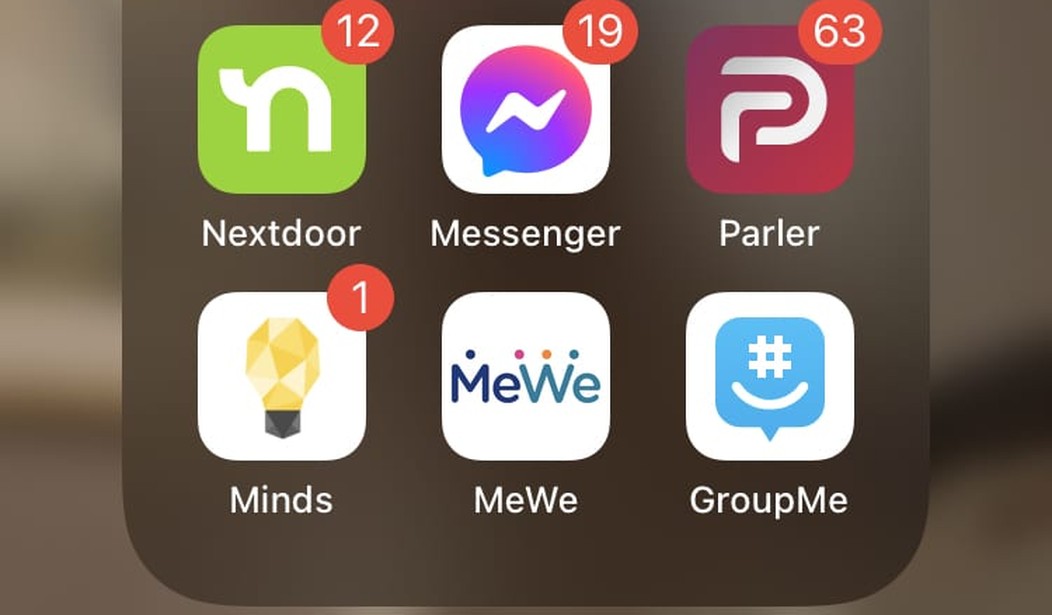On Friday, Colorado Senate President Pro Tempore Kerry Donovan, who is also running to unseat U.S. Rep. Lauren Boebert (R-Colo.), filed S.B. 21-132, a bill to regulate “digital communications.” The bill would create two regulatory agencies to monitor Big Tech companies and penalize them for allowing a person to engage in “unfair or discriminatory digital communications practices,” including promoting “hate speech,” “undermining election integrity,” allowing the spread of “fake news,” and targeting for digital ads.
The bill does not define these hot-button terms, apparently leaving their definition up to the state digital communications division. This Big Tech regulation seems ripe for abuse. It would give cover for Big Tech to censor conservatives in the name of fighting “hate” and “fake news.”
S.B. 21-132 would create a digital communications division and a digital communications commission, tasking these bodies with registering every “digital communications platform” — including “social media platforms like Facebook, Twitter, and Instagram and media-sharing platforms like YouTube and Twitch” — and monitoring their activity to prevent “discrimination.”
“The division shall investigate and the commission may hold hearings on” claims alleging that one of these Big Tech companies “has allowed a person to engage in … unfair or discriminatory digital communications practices on the platform,” such as:
- “practices that promote hate speech”
- practices that “undermine election integrity”
- practices that “disseminate intentional disinformation, conspiracy theories, or fake news”
- or practices that “authorize, encourage, or carry out violations of users’ privacy.”
SPLC Demands Big Tech Silence Conservatives in the Name of Fighting White Supremacist Terror
The bill also directs the regulatory agencies to investigate “business, political, or social practices that are conducted in a manner that a person aggrieved by the practices can demonstrate are unfair or discriminatory to the aggrieved person.” These practices include targeting users for collecting and disseminating their data, profiling users based on their data, selling personal data to others in order to provide “location-based advertising or targeted advertising,” or using “facial recognition software and other tracking technology.”
Some Big Tech data collection and targeted advertising can seem downright creepy, and legislatures arguably should protect citizens’ privacy to some degree, but this language essentially opens the floodgates for claims of grievance and discrimination.
Yet the provisions on fighting “hate speech,” protecting “election integrity,” and stopping the spread of “fake news” may be even more insidious.
Colorado’s regulatory agencies don’t exactly have a stellar track record when it comes to preventing “discrimination.”
Back in 2012, a bakeshop owner by the name of Jack Phillips refused to lend his artistic work to celebrate a same-sex wedding, citing his belief that marriage is between one man and one woman. The Colorado Civil Rights Commission found him guilty of discrimination on the basis of sexual orientation, even though the same commission defended another baker’s right to refuse to create cakes that stated a message with which she disagreed. Worse, the commission compared Phillips’ actions to Nazi apologists, even though Phillips’ own father fought the Nazis and liberated a concentration camp in World War II.
Ultimately, the Supreme Court ruled (7-2) that Colorado had acted with “clear and impermissible hostility toward [Phillips’] sincere religious beliefs.” The Court stuck down the double standard, vindicating Phillips’ right to free exercise of religion against a hostile government.
Even after the Supreme Court defended Phillips, the commission hounded the baker yet again, this time because he had refused to make cakes celebrating a transgender lawyer’s transgender identity and a cake celebrating Satan smoking marijuana.
Workers at prominent Big Tech companies like Facebook and Twitter have a documented leftist bias. In the 2018 midterm elections, Twitter employees gave $228,000 to candidates, 98.7 percent of that to Democrats. Facebook employees gave more than $1 million, 94.5 percent of that to Democrats. Two-thirds of Big Tech employees (67 percent) described their workplace’s ideological and cultural norms as “liberal” or “very liberal” in a 2018 survey.
Disagreeing With Biden’s Transgender Policy Is ‘Incitement’ Now? Facebook Says So…
Democrats control the Colorado state House, the state Senate, and the governor’s mansion. If this bill passes, the digital communications division and the digital communications commission will likely share the same left-leaning bias as the Big Tech companies they regulate.
When it comes to “hate speech,” leftists often follow the tack of the Southern Poverty Law Center (SPLC), which brands charitable organizations that dissent from its far-left orthodoxy as “hate groups,” placing them on a list with the Ku Klux Klan. Many on the Left, particularly among transgender activist circles, equate the advocacy of conservative ideas with “hate,” and seek to silence those who disagree with their agenda as haters. Amazon, which excludes conservative Christian organizations the SPLC brands “hate groups” from its charity donation platform, delisted a mainstream book disputing transgenderism last week.
As for “undermining election integrity,” Democrats have accused Republicans of “undermining election integrity” when Republicans rightly point out that voting by mail is less secure than voting in person. Meanwhile, Republicans rightly complain that Democrats are “undermining election integrity” by pushing voting by mail and other schemes to weaken the security of elections. Social media companies have flagged claims that the 2020 election was stolen, even though they did not flag such claims about the 2016 election.
Finally, honest disagreements of fact have been attacked as “intentional disinformation” and “fake news.” Climate alarmists like Sen. Sheldon Whitehouse (D-R.I.) routinely accuse fossil fuel companies and conservative think tanks of intentionally lying to cover up the supposed existential threat of climate change, even though climate alarmist predictions have been proven wrong time and time again.
When government sets out to monitor truth on the internet, whose truth will the commissars enforce?
Tyler O’Neil is the author of Making Hate Pay: The Corruption of the Southern Poverty Law Center. Follow him on Twitter at @Tyler2ONeil.









Join the conversation as a VIP Member